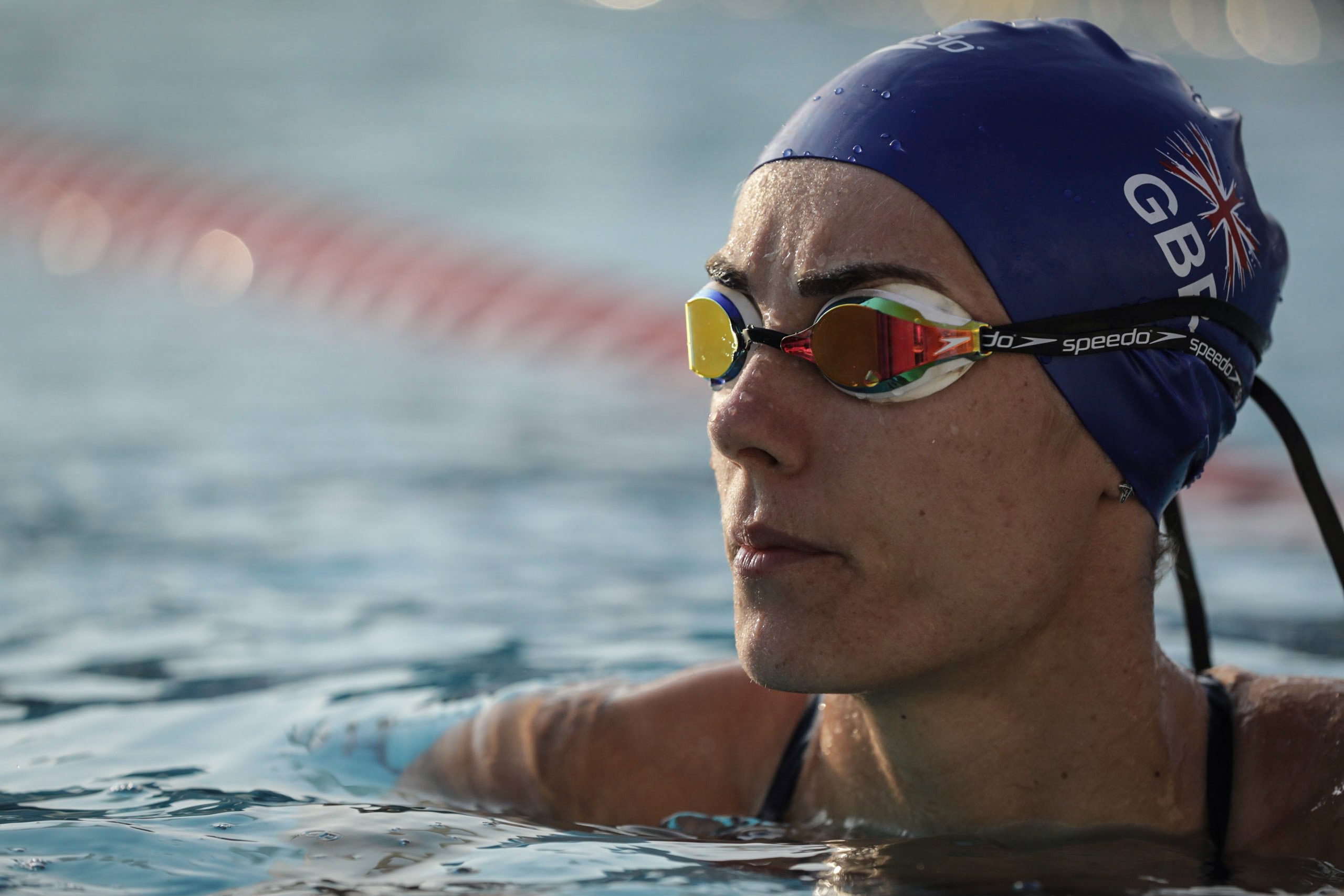Lucy Charles-Barclay takes second at British Olympic Trials 1,500 m – tracking her journey from swimmer to Ironman champion
Lucy Charles-Barclay just finished a close second at the British Swimming Selection Trials
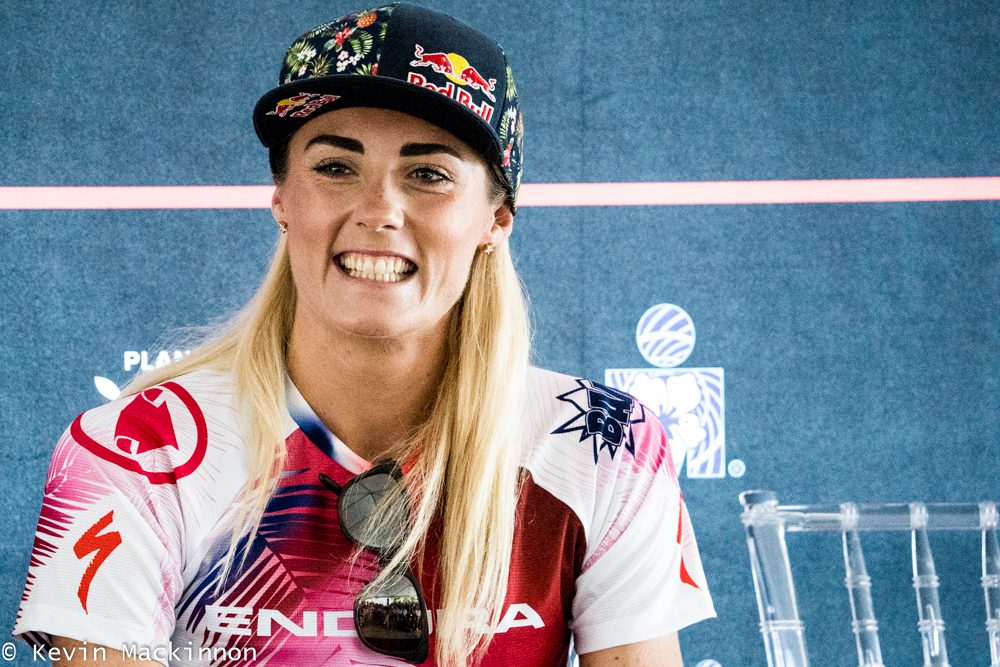 Photo by:
Kevin Mackinnon
Photo by:
Kevin Mackinnon
Earlier today Lucy Charles-Barclay took second at the British Swimming Selection Trials in the 1,500 m, returning to her roots as a former national team swimmer by joining some of Great Britain’s top swimmers as they tried to qualify for the upcoming Tokyo Olympics.
Charles-Barclay finished the race just .17 seconds behind eventual winner Leah Crisp, an incredible achievement. Charles-Barclay’s time was 16:46.26, just over 11-seconds slower than her PB over the distance, set in 2013.
Charles-Barclay did herself proud in the race, leading through the first few hundred metres, then staying in the mix in the race and coming oh-so-close to taking the race, just being outsprinted by Crisp for the win.
A few years ago we featured Charles-Barclay on the cover of Triathlon Magazine Canada, and included this feature in the magazine:

There’s competitive, and then there’s Lucy Charles-Barclay.
“The second you came out you wanted to win,” her parents have told her. What she remembers? “It was winning or nothing as a child.”
There were the days she tormented her sister with a game called Speedstacks – a game that requires stacking cups – to the point where her two-years-younger sister would hide the game because things got so heated.
That competitive streak has been more than apparent since Charles-Barclay burst onto the triathlon scene three years ago, taking her first pro race, Ironman Lanzarote, and then, two weeks later, running her way from fifth to the Challenge Championship. Later that year the Brit would finish second at the Ironman World Championship in Kailua-Kona, Hawaii. In fact, she and Switzerland’s Daniela Ryf have dominated the last three Ironman world championship events – after going one-two in Kona in 2017, they went one-two in South Africa at the Ironman 70.3 World Championship last year, then repeated the one-two finish in Kona last October.
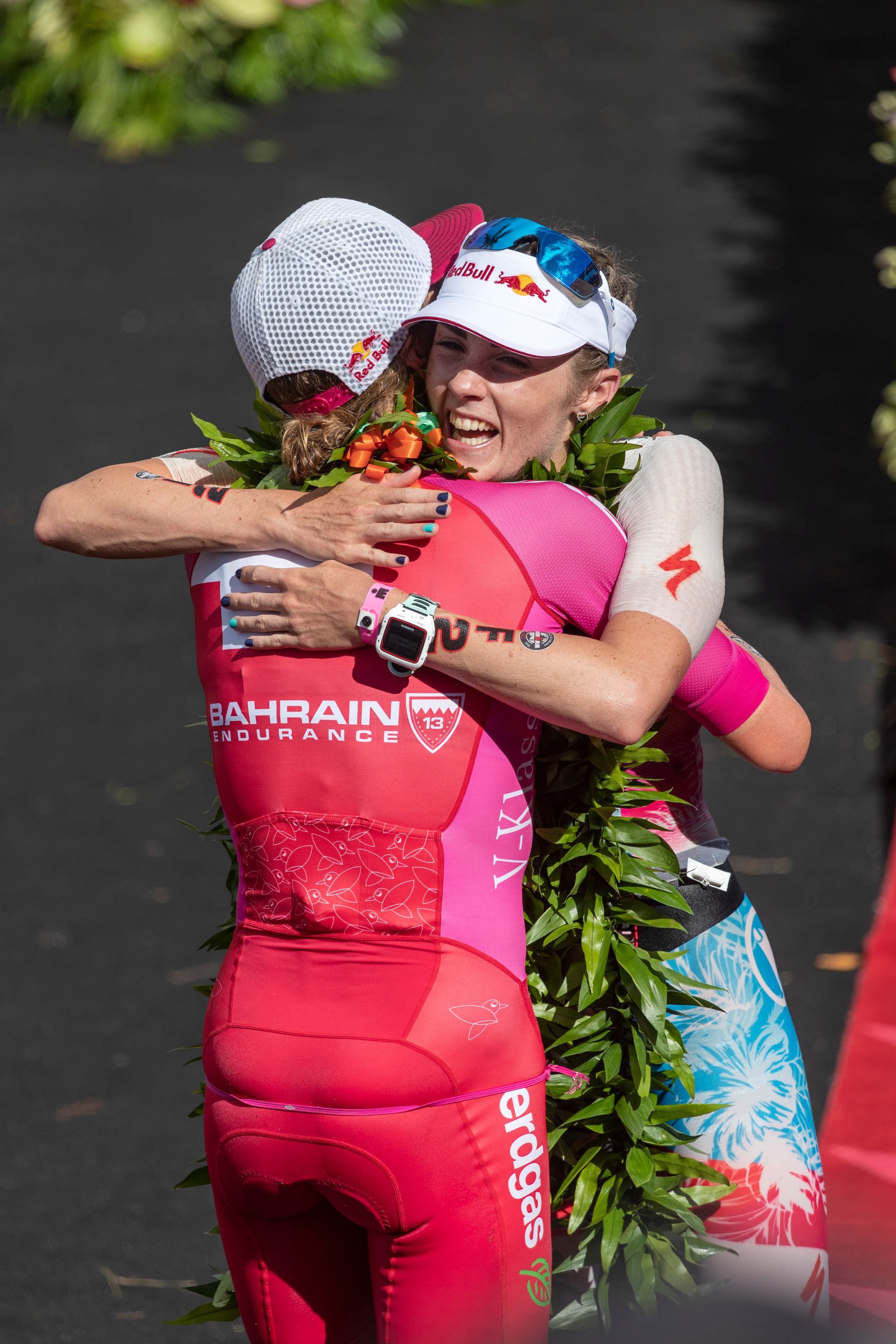
The two are in a class of their own right now. In the near-perfect Kona conditions last year Ryf shattered her own course record, finishing in 8:26:18. Charles was over 10 minutes back, but finished another five minutes ahead of third-place finisher Anne Haug from Germany.
In true British fashion, though, despite Charles-Barclay’s intense competitive nature, she’s never displayed even a hint of any thing other that pure respect and admiration for Ryf’s incredible performances. Charles-Barclay’s class and poise should not be mistaken as a sign that she’s become any less competitive as a 25-year-old versus the young nine-year-old her parents remember determined to win all her swim meets.
“The kind of rage inside to be number one is always in there,” she says. “If I couldn’t have given any more and I didn’t win, then fair play, that person’s better on the day and you can’t change that.”
Charles-Barclay also recognizes that Ryf provides the perfect push to help her excel in her triathlon career.
“I guess it helps, too, to have that person who is always pushing me,” she says. “Maybe if I’d gone pro straight away and Daniela didn’t exist in the sport, it would have almost have been too easy. The fact that it hasn’t been easy to get to that top spot means that I’m still working hard every single day. I don’t think we’re anywhere near done – we’re still progressing. Maybe the tables will turn this year and I’ll be able to get the top spot. Until then I’m going to keep working as hard as I can.”
Related: Lucy Charles-Barclay signs with Cube bicycles and DT-Swiss
******
The first time I met Lucy Charles-Barclay was at the Ho’Ala Ironman Training Swim in 2016. The swim takes place the week before the Ironman World Championship – over the same course as the Ironman the following week. She won the swim, finishing seven seconds ahead of Germany’s Andi Boecherer and 27 seconds ahead of Reece Barclay, then her boyfriend.
A year after winning her age group in Kona, Charles-Barclay wasn’t competing on the Big Island that year because of a stress fracture. It was hard not to notice her, though. Were it not for her broad shoulders, and the fact that she’d just dusted some of the best triathletes in the world, you’d easily think that Charles-Barclay was a model who’d somehow made it to the wrong beach for her next photo shoot.
The next time I met her was at Ironman Lanzarote. It was to be her debut pro race. I was asked to interview her before the race for the television coverage of the race. It was during that interview that I learned about her swimming background. It was during that conversation that I got it – Lucy Charles-Barclay was on track to become a superstar in the sport, I realized.
Remember I talked about that super-competitive nine-year-old who wanted to win every swimming race she went into? Charles-Barclay can still remember the day the Olympic flame got lit inside her head.
“As a younger kid I remember being in Trafalgar Square when they announced that London had got the Olympic Games and I was so excited because I thought ‘that’s the Olympics I’m going to be at, that’s the Olympics I’m going for and hopefully get to do a home games,’” she says.
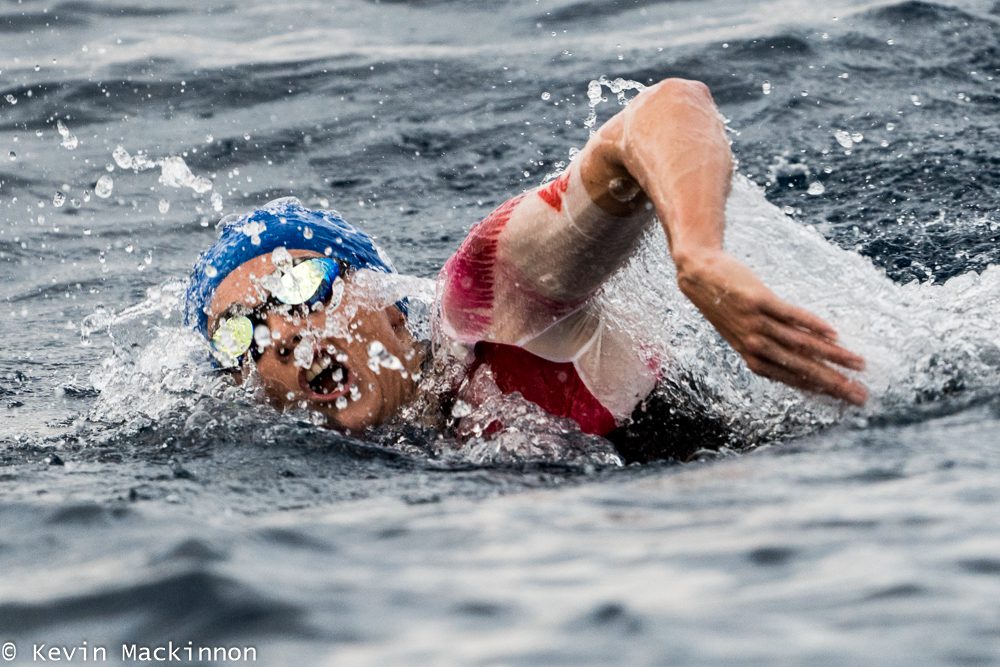
Charles-Barclay was a distance swimmer and would eventually focus on the open-water event. For the Olympics that meant a 10 km swim. A year before the games she seemed on track to make her dream a reality – she was picked to represent England at the Olympic test event, which was held on the same course that would be used for the 2012 Games.
“For me that was a huge step forward because I got invited to do that and race the best girls in the world,” she says.
Competing in London, though, wasn’t a forgone conclusion. The United Kingdom was allowed to send one woman to the Games in the 10 km open water swim. There were five British women who had all achieved the Olympic standard, though. In the end, the 18-year-old wasn’t picked for the team.
It was hearing that story that convinced me that Charles-Barclay had what it took to become one of the world’s best triathletes. Compared to the pressure-cooker of trying to make an Olympic team in a super-competitive environment, when you’re just 17 or 18, no less, competing in a triathlon is piece of cake. If Charles-Barclay had figured out how to ride a bike and run reasonably well, I thought, she obviously had the drive to compete at the highest levels of the sport.
The only thing I was wrong about? How quickly she would get there.
I got to watch Charles-Barclay decimate the field at Ironman Lanzarote a few days after that interview. Then, two weeks later, I was announcing at the Challenge Championship in Samorin, Slovakia. After leading out of the water (go figure), Charles-Barclay was caught and passed on the bike by four women, including Canada’s Heather Wurtele and Australia’s Anabel Luxford. Those two would push each other through the run, with Wurtele seeming to be on her way to the win. Then, with five km to go, Wurtele started to fade. Luxford took the lead, only to be passed in the last kilometre by a flying Charles-Barclay.
Suddenly I wasn’t the only person on the planet realizing that Lucy Charles-Barclay was the real deal. A few months later she and fellow super-swimmer Lauren Brandon would lead the way out of the water in Kona, forcing Ryf to push herself to her limit to finally catch, and pass, the pair in the closing kilometres of the bike and then holding on through the marathon to take the win. Charles-Barclay would finish second. Those who had any doubts that the back to back performance in Lanzarote and Samorin was either a fluke or because of a lack of competition were forced to admit that Lucy Charles-Barclay was on track to be the sport’s next star.
****
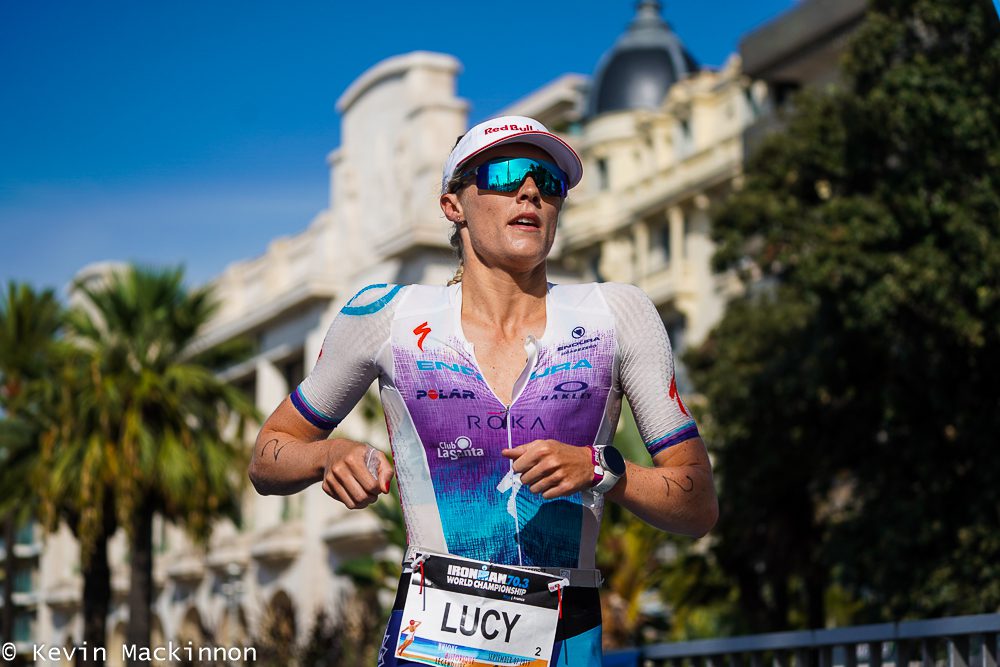
Hold it, you’re saying. You’ve missed a chunk of this story. You go from her narrowly missing the Olympics to a full-fledged triathlon career. There must be some sort of bridge. There was.
Charles-Barclay embarked on her 2013 swim campaign with a vengeance. She was determined that while she hadn’t made her dream come true in London, Rio would be another story. She arrived at the British swimming championships ready for a big day, and she delivered. There was just one problem.
“I had one of my best ever swims,” she says. “I think I was fourth at the British Championships, but the time I swam was so good for me on a 1,500 m. But I didn’t get that normal buzz that I usually got. It was my best-ever swim, but I was like, ‘why am I doing this anymore?’”
“I don’t know that I can do this for four more years,” she thought to herself.
Suddenly she found herself not knowing what she wanted to do.
She got a job working at the Paradise Wildlife Park in Hartfordshire in the marketing department doing social media. It was time to embark on a new stage in her life. The competitive fire hadn’t completely gone, though.
Now is an appropriate time to introduce another character in the Lucy Charles-Barclay success story. Meet Reece Barclay, the “Barclay” of the “Charles-Barclay” name that Lucy took on after they got married last December. The two met while training at the Hatfield Swim Club, one of Britain’s top teams. He had just started studying sports science at university, she was taking a gap year to focus on swimming. The two have been virtually inseparable since.
Even though she hadn’t been doing much swimming since those fateful national championships, the two decided to enter the Great Scottish Open Water Swim. It “went terribly,” Charles-Barclay remembers – which shouldn’t have been a surprise considering neither had done a lot of training.
Sitting in their hotel room after the race they decided they needed a goal to get them training. One of Reece’s friends had been a triathlete who had competed at Ironman Lanzarote, so Reece suggested that they enter Ironman UK the following year.
“We both have mountain bikes,” Charles-Barclay remembers with a laugh, “we can do this.”
They went downstairs and told all their swimming friends that they were now triathletes.
It was steep learning curve for the pair as they embarked on the new sport. They quickly learned that doing the race on a mountain bike probably wasn’t a good idea. The joined a local triathlon club, eventually invested in tri bikes, and journeyed off to Bolton for Ironman UK.
The day was a success. Reece finished in a little over 11 hours, Lucy was just over 12 hours. She was second in her age group. At the awards ceremony the two learned about Kona for the first time as they saw the winners of their age groups earn their qualifying spots for the world championship.
“As soon as we found out about Kona, we both said ‘we’re doing that next year,’” Reece, who is every bit as competitive as Lucy, says.
As they embarked on their triathlon training journey, they decided to start their own personal training business – Lucy had been training to become a personal trainer while she’d been doing her social media work at the zoo. Having their own business allowed them to train around their work schedule. The result was a huge jump in performance – Lucy would go from 12:16 in that first Ironman UK race to an age-group winning 10:58 in the next. Reece also won his age group. It was off to Kona for both of them.
In Kona that year Lucy would win the 18 to 24 age group, Reece would finish fifth in the men’s category. The writing was on the wall – both had potential to do big things in the sport.
The next year was a tough one for Lucy – she spent most of the year off with a stress fracture, a common injury for swimmers who haven’t had to deal with weight-bearing exercise for so long who push their impressive aerobic engines out running. There was that Ho’Ala swim, though, which set things up for her big breakthrough year in 2017.
Reece is the coach as well as the athlete, but it quickly became apparent that if they were to achieve their goals, he would have to step back from his own racing for a while in order to help build her career.
“The last two years my career took a bit of a back seat as Lucy’s career rocketed from nowhere to second in Kona,” he says. “We didn’t really have the infrastructure in place to deal with the level of media commitments … we’re very lucky now that we’ve got a very good management group behind us, but before that I was doing all the work, which meant I was sending emails all day arranging her schedule.
“Financially it was it was more important that Lucy was taken care of at races because she was the one making money, and we were struggling at the time,” he continues. “I put my career on hold for two years and now I would say she’s much more comfortable, we’ve got a great support network and I’ve been concentrating back on myself for the last six months and, low and behold, I’m getting some massive PBs. I’m excited to see what I can do over the next few years.”
While the set up made sense, it wasn’t easy for Lucy to watch Reece sacrifice his training for her.
“It was difficult because I’ve seen how much Reece puts into training,” she says. “I would say I’m someone who is dedicated to training, but the dedication Reece gives is on another level.”
In the end, though, it was all worth it. Lucy has surged to the top levels of the sport and they can now pursue their passion. As they have from day one in their triathlon journey, they’ve done it together. I asked Reece how hard it is to maintain a relationship when you’re a coach and training partner.
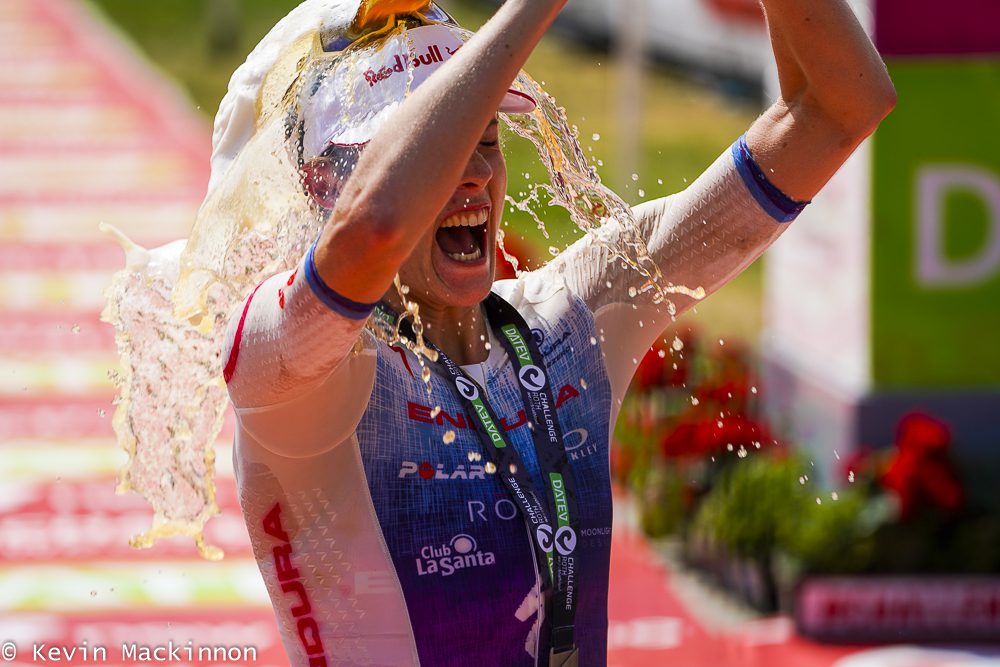
“For a long while I kept coming up with reasons why its difficult, but we don’t struggle,” he says. “We bicker like most couples, but we are literally glued at the hip. We are with each other 24/7. We train all day, we run a business together. We live in a small flat in London. It’s always been that way for us. Ever since we met we’ve been doing the same training schedule. It was always like that.”
“Yes, we’re competitive with each other, and that’s a good thing, but sometimes we have to put a lid on it because if we’re out for an easy jog and suddenly it turns into who’s going to race home the quickest,” he continues.
So how does the coach, husband and training partner see Lucy Charles-Barclay’s chances at becoming the best in the world?
“I don’t want to sound arrogant and say its just a matter of time, but I think it’s just time,” he says. “Lucy needs time to develop into her own athlete that she is. She’s 25, going to be 26 this year, so she’s very, very young in long-distance terms, and it has only been a few years we’ve been able to do real run volume. She unfortunately had a stress fracture early on in her triathlon career and that resulted in pretty much a full year out of running, so her run progression has been amazing this year. We now know what she can and can’t do, so I just think it’s just a matter of time – everyone can make progress, but I would say the potential for Lucy to make progress is probably astronomical. Considering where she already is – they say it takes 10 years to master a sport. She’s definitely mastered swimming, but we’re only five years into running and cycling, that’s another five years before she becomes a complete triathlete. It’s scary to think how good she can be. Watch out.”
Watch out is right. Lucy Charles-Barclay isn’t the only competitive one in that household. It might take a lot to draw it out, but at the end of the day, there’s a huge drive to move one step higher on the Kona and 70.3 worlds podium. And, unlike the days when her sister used to hide the game on her, there’s no hiding the game here.
